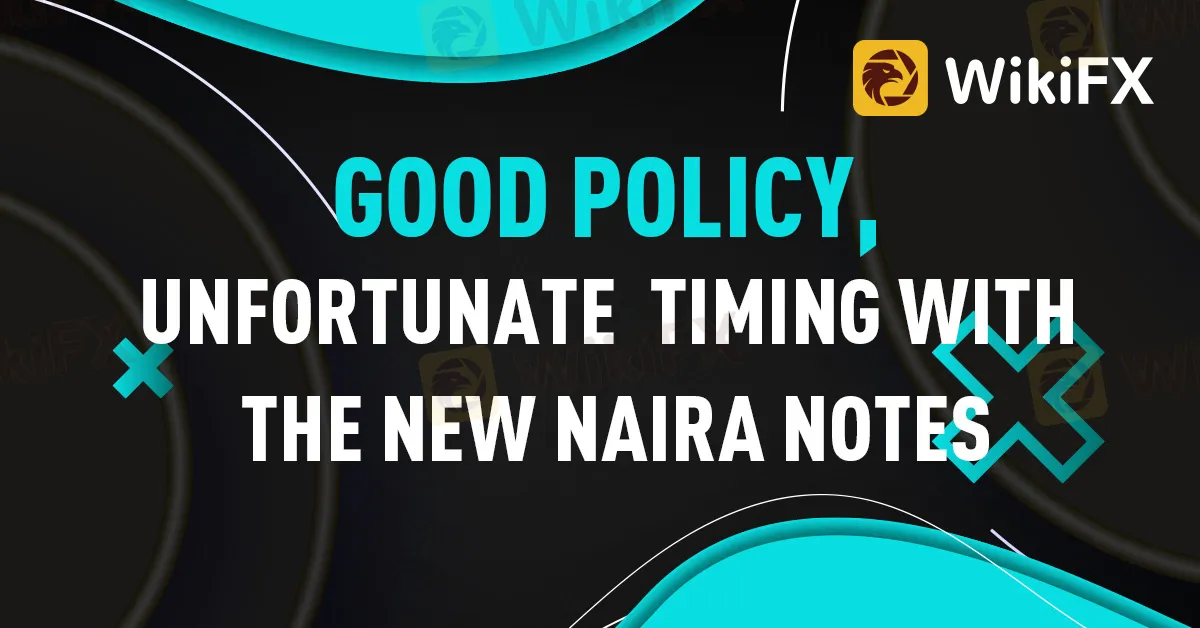Abstract:The Central Bank of Nigeria's (CBN) audacious plan to redesign and release new naira notes by mid-December is not only stunning to Nigerians but is also poorly thought out and inopportune. Unsurprisingly, the move has generated controversy, which has been made worse by the Minister of Finance, Budget, and National Planning, Zainab Ahmed, publicly denouncing it. The decision by the apex bank has thrown the delicate foreign exchange market into confusion, highlighting its folly and terrible timing just before the general elections and amid rising inflation. Nigerians should not anticipate much from the CBN's new notes if it cannot improve its policy effectiveness under Godwin Emefiele.

The Central Bank of Nigeria's (CBN) audacious plan to redesign and release new naira notes by mid-December is not only stunning to Nigerians, but is also poorly thought out and inopportune. Unsurprisingly, the move has generated controversy, which has been made worse by the Minister of Finance, Budget, and National Planning, Zainab Ahmed, publicly denouncing it. The decision by the apex bank has thrown the delicate foreign exchange market into confusion, highlighting its folly and terrible timing just before the general elections and amid rising inflation. Nigerians should not anticipate much from the CBN's new notes if it cannot improve its policy effectiveness under Godwin Emefiele.
Without a doubt, since this administration took office, the value of the naira has been falling rapidly. The CBN used the uneasiness over significant currency holdings outside of the banking sector and the purportedly negative impact on the effectiveness of monetary policy to defend the decision to modify the notes when presenting the new currency plan. Other justifications included a desire to bolster its cashless policy and a resolve to use more recent advancements in currency production to lessen instances of currency fraud. The governor came to a conclusion by saying that whereas central banks typically redesign and issue new currency notes every five to eight years, the naira has not experienced such a modification in the previous 20 years.
According to the data, it is unclear why there is such concern about the amount of money that is not in the banking system being at 85% when the ratio of this money to the total amount of money in circulation has remained constant for the past 20 years at over 80–90%. Additionally, the percentage of broad money (also known as M3 in Nigeria) kept outside of the banking system has been declining from as high as 20–30% in the early 2000s through the decade and will finally reach 6.5% by the end of September 2022.
The increase in the use of electronic banking and other parts of the banking system is largely to blame for this downward trend. In actuality, the total amount of demand deposits in the banking sector was N18.7 trillion. In light of these developments, it would be puzzling for the CBN to worry that the N2.73 trillion outside the banking system was somehow worsening monetary policy than the N18.7 trillion in demand deposits. The CBN makes legitimate points about crime and money fraud, but considering the time since the last exercise, it seems more plausible that the motivation behind the desire to revamp the currency. The case for monetary policy's success raises more questions than it does.
The CBN's action is not very ground-breaking. In an effort to eradicate black money and combat corruption, the Indian government abruptly destroyed the majority of the country's currency in 2016. On November 8, 2016, Prime Minister Narendra Modi said that the two highest-denomination currency notes in the nation—the Rs 1,000 and Rs 500—would be pulled from circulation right away in a live broadcast to the entire country. The idea, which the press has dubbed “demonetization,” was quietly developed and then suddenly unveiled as Modi's masterstroke against black money and the beginning of the digital, cashless society.
Chaos followed as a direct result, and the nation struggled to cope. Banks and ATMs were crowded with people trying to swap old notes and get fresh cash. Bank lines lengthened, many people suffered—especially the poor, who lacked access to credit cards or mobile wallets—and there were reports of hundreds of fatalities as a result of the situation. When the dust settled two years later, it was clear that demonetization had not been the huge success that the government had anticipated. Black money remains a problem in India.
India's experience with demonetization offers valuable insights for nations combating black money or developing a cashless economy. Demonetization's long-term social, economic, and political effects are still being felt in India, although many difficult topics still lack comprehensive solutions. Supporters of demonetization projected that hoarders of illicit money would destroy their holdings rather than declare them, resulting in a financial windfall for the nation. However, the Reserve Bank of India (RBI), the nation's central bank, announced in August 2018 that 99.3% of the demonetized notes had been delivered to banks. Nearly nothing was put out.
The wealthy and political class in Nigeria have oversupplied the forex market with naira notes, driving up the price of the dollar and further placing those in need in a precarious position.
The situation in Nigeria over the past few days has been consistent, particularly in the foreign exchange market. The parallel market saw a significant depreciation of the naira, which has since continued to decline with the N1000/$ level now in sight.
Nigeria's foreign exchange reserves last week decreased by $101.78 million week over week to $37.37 billion, continuing a nine-week slide (01 November). The naira decreased by 0.2% to N445.50/USD in the I&E window. The monetary policy decision-makers have not changed their stance. Although the official rates are still low, the consequences for inflation are grave since many businesses really buy foreign currency on the parallel market, and prices reflect this. The pace of inflation is quickly exceeding incomes for the typical Nigerian, whose income has not changed significantly in the last five years.










